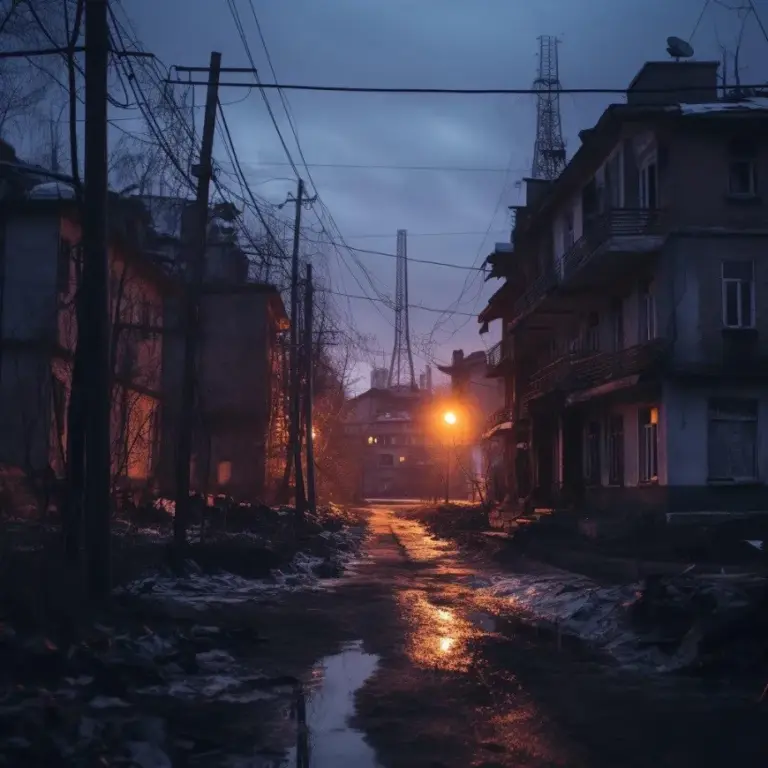The growing danger of natural disaster disinformation

Rumour and gossip tend to follow natural disasters. Victims stretch what little they hear to fill the information vacuum that naturally follows a major event. Nascent efforts by state actors to influence natural disaster victims through disinformation have seen limited success. That’s poised to change.
The weaponisation of disinformation has become particularly effective following natural disasters, especially where affected populations are susceptible to civil unrest. The use of disaster disinformation to increase the risk of civil unrest after a natural disaster could exacerbate a historically rare problem. Recent disaster disinformation activity shows increased sophistication.
The fog of disaster
Natural disasters are becoming more frequent. According to the Swiss Re Institute, the number of worldwide natural disasters surged from 43 in 1970 to 170 in 2021. The 1970-1979 average of 47.2 events is far smaller than the 2012-2021 average of 186.4. More natural disasters mean more potential to manipulate victims and drive civil unrest in adversary states.
Historically, disaster-induced civil unrest has been rare. Philip Nel and Marjolein Righarts have counted 225 instances since 1970. At 176, Tobias Ide, Michael Brzoska, Jonathan Donges, and Carl-Friedrich Schleussner’s estimate is lower. Both estimates may be high.
I scoured more than 13,000 natural disaster event records in the EM-DAT database for adjacency to major civil unrest to find cases where natural disasters caused or significantly influenced ensuing unrest. The resulting 22 events offer several insights, even if they may be incomplete.
Linking civil unrest to a particular peril like a tropical storm or earthquake is not especially revealing. Earthquakes are the most likely to cause civil unrest, but they account for only 32% of cases, growing to 36% if tsunamis are included. Drought and flood together account for another 32%. The speed of onset of disasters isn’t indicative either. The immediate shock of an earthquake isn’t more likely than the slow grind of a drought to lead to civil unrest.
What stands out is regional clustering. It is tempting to think this is related to instability in some parts of the world. After all, six of the events in the EM-DAT dataset occurred in Central and South America and ten in Asia. However, the regional concentration likely has more to do with susceptibility to natural threats.
Region is linked to natural perils more than political instability when examining the connection between natural disasters and civil unrest. For example, Peru and Mexico are susceptible to earthquakes, and the Caribbean is no stranger to tropical storms. Fault lines and weather patterns offer some predictability. Although that is changing–like the wildfire threat in general–Florida remains at a greater risk of a hurricane than drought. For Moldova, it’s the inverse.
Of course, political instability is a factor. One of the most effective predictors of disaster-induced civil unrest is prior civil unrest. Although this may imply that more developed states are less likely to suffer disaster-induced civil unrest, it does not mean they’re immune, particularly when that risk is paired with the threat of disinformation campaigns.
The addition of disinformation to an already unstable environment could increase the likelihood that a natural disaster pushes the affected population over the edge. Natural disasters increase the vulnerability of target populations.
Early efforts at disaster disinformation campaigns were ham-fisted, such as the recycling of a video of a shark swimming through a flooded highway after US hurricanes. The meme goes as far back as 2011’s Hurricane Irene and resurfaced as recently as 2022’s Hurricane Ian (and was round for several US hurricanes in between). It was debunked quickly a decade ago, but the “highway shark” somehow finds a way to return.
The Moldova laboratory
Europe’s poorest country, agriculture-dependent Moldova, is susceptible to droughts. In 2023, drought eroded the country’s agricultural sector by nearly 20%. Its adjacency to the war in Ukraine, state poverty, and energy insecurity (it relies on Russia) create seemingly ideal conditions for disinformation operations. Moldova has been awash in disinformation related to the drought and otherwise. Unsurprisingly, protest followed, although it did not turn violent.
In the semi-autonomous regions of Transnistria and Gagauzia, messaging from Russian government outlets such as TASS validates both local mistrust of the Chisinau government and nostalgia for the Soviet era. Here, pre-existing grievances create fertile soil for disaster-induced civil unrest and disinformation campaigns.
Once again, state actors are pushing on an open door.
Moldova may have become a laboratory for the weaponisation of disaster disinformation, but the country’s small size and poor economic state limit the scale of such operations. Could disaster disinformation work against a larger adversary? Unfortunately, yes.
Stoking the Hawaii fire
The 2023 wildfire in Hawaii was unlike anything the state had ever experienced, with nearby Hurricane Dora literally stoking the fire. Disinformation spread quickly in the community. Some of it was domestic and indicative of the disinformation epidemic already running rampant through the United States. The debunked story of a “direct energy weapon” (proposing that laser beams from space caused wildfires on earth) was among the highest-profile cases.
More instances of disinformation came from state actors, namely Russia and China. The effects are difficult to quantify and did not cause civil unrest. However, advancing such messages as “Hawaii, not Ukraine” – intended to suggest that the US government is favouring foreign states while neglecting its own citizens – could contribute to broader societal divisions across the United States. The prospect of more refined and effective campaigns in the future is as chilling as it is realistic.
The fire in Hawaii was a close call. All the ingredients necessary for disaster-induced civil unrest were present. A disaster-affected population that is geographically and culturally distinct from its country, just like Transnistria and Gagauzia, became the victim of focused disinformation efforts by Russia and China. By linking the natural disaster in Hawaii to such issues as foreign aid for Ukraine, those state actors attempted to sow discord and tap into pre-existing grievances. The outcome could have been much worse.
Get off the bench
Tracking disinformation, fact-checking questionable claims, and improving media literacy have been standard fare in the fight against disinformation. People need to understand the information they consume, especially when they are more disposed to believe what they should not. But that is a lot to ask, especially when disaster strikes.
To mitigate the risk of disaster disinformation, we must make it harder for such claims to take root. Pre-existing grievances are fundamental to the risk of disaster-induced civil unrest. While fighting disinformation that appeals to those grievances is important, addressing the grievances themselves can be far more effective.
Constrained access to food, water, and shelter intensifies post-disaster vulnerability. Measures that enhance the distribution of aid can have a significant impact – and implementing measures that safeguard vulnerable communities before disaster strikes is even better.
From aid to parametric insurance (risk transfer that pays a claim when a disaster reaches a predefined severity threshold), something as simple as making drinkable water available can go a long way to preventing disinformation from gaining a foothold. Over time, implementing measures to prevent natural disaster damage will make an even bigger difference.
By managing the aftermath of disasters well, disinformation campaigns will not be worth the effort.




